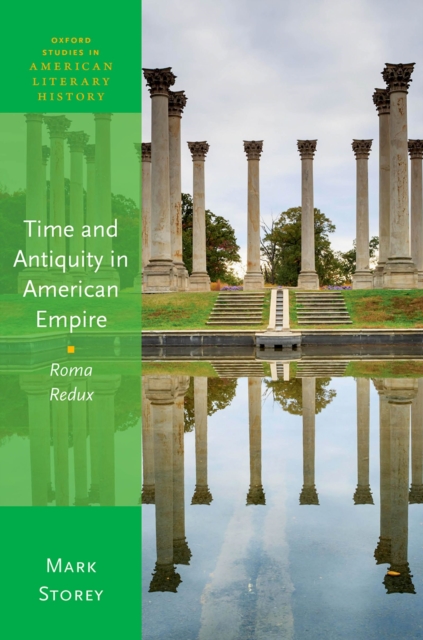
Time and Antiquity in American Empire : Roma Redux EPUB
by Mark Storey
Part of the Oxford Studies in American Literary History series
EPUB
Description
This is a book about two empires-America and Rome-and the forms of time we create when we think about them together.
Ranging from the eighteenth century to the present day, through novels, journalism, film, and photography, Time and Antiquity in American Empire reconfigures our understanding of how cultural and political life has generated an analogy between Roman antiquity and the imperial US state-both to justify and perpetuate it, and toresist and critique it. The book takes in a wide scope, from theories of historical time and imperial culture, through the twin political pillars of American empire—republicanism and slavery—to the popular genres that have reimagined America's and Rome's sometimes strange orbit: Christian fiction, travel writing, and science fiction.
Through this conjunction of literary history, classical reception studies, and the philosophy of history, however, Time and Antiquity in American Empire builds a morefundamental inquiry: about how we imagine both our politics and ourselves within historical time.
It outlines a new relationship between text and context, and between history and culture; one built on the oscillating, dialectical logic of the analogy, and on a spatialising of historical temporality through the metaphorsof constellations and networks.
Offering a fresh reckoning with the historicist protocols of literary study, this book suggests that recognizing the shape of history we step into when we analogize with the past is also a way of thinking about how we have read—and how we might yet read.
Information
-
Download - Immediately Available
- Format:EPUB
- Pages:248 pages
- Publisher:OUP Oxford
- Publication Date:18/03/2021
- Category:
- ISBN:9780192644985
Other Formats
- PDF from £58.59
Information
-
Download - Immediately Available
- Format:EPUB
- Pages:248 pages
- Publisher:OUP Oxford
- Publication Date:18/03/2021
- Category:
- ISBN:9780192644985










